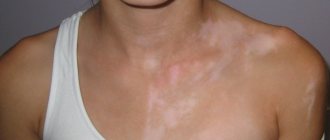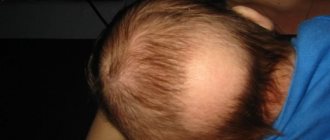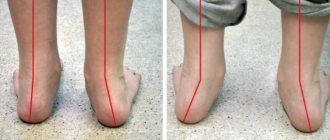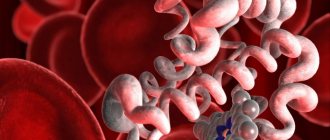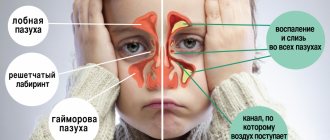Salivation is a natural physiological process that occurs throughout a person’s life. Special glands located in the oral cavity are responsible for it.
They are capable of producing about 2 liters of saliva per day. Sometimes the amount of saliva produced increases sharply, which significantly affects the quality of life. This is especially common in childhood.
Increased salivation in a child can be caused by various reasons, both natural and pathological. To understand this issue, it is necessary to consider what role saliva plays in the life of a child’s body.
Functions of saliva
Firstly, it is involved in the digestion of food, making it softer and helping it move through the esophagus. The enzymes contained in saliva are capable of breaking down starch and fats. Thus, food enters the stomach already partially digested.
Secondly, saliva plays a protective role, preventing the mouth from drying out and having a bactericidal effect. It helps to wash away food debris, and with it bacteria. Saliva neutralizes many acids and alkalis, protecting tooth enamel from their aggressive effects. It is also able to strengthen the enamel, nourishing it with important microelements (fluorine, phosphorus, calcium).
Thirdly, it helps make teething less painful by reducing inflammation in the gums. And finally, in the first months of a baby’s life, saliva has a special viscosity, which makes breastfeeding easier during natural feeding.
Why is dysphagia dangerous for children?
Dysphagia in children is a dangerous condition, especially if timely treatment was not started and the dysphagia itself and the cause that provoked its appearance occurred.
If difficulty swallowing occurs, it can cause serious complications. There is a high risk of inflammation of the esophagus, which can become chronic. This form of inflammation is a risk factor for the formation of tumor processes, not only in the esophagus, but also in other organs.
Important
If a child is unable to swallow food normally, he may completely refuse to eat it, which threatens the development of anorexia. And, as you know, this condition already threatens health and even life. Refusal to eat is stressful for a child’s body.
Doctors remind that dysphagia and its cause must be diagnosed promptly and an effective treatment plan drawn up.
Alena Paretskaya, pediatrician, medical columnist
22, total, today
( 105 votes, average: 4.50 out of 5)
Appendicitis: types, symptoms and diagnosis
Treatment of the pancreas at home
Related Posts
Causes of increased salivation in children
Excessive drooling is scientifically called hypersalivation. In children, there are clearly visible age periods when it can occur most intensely.
Important! There is a distinction between true and false hypersalivation.
No ads 1
True hypersalivation is caused by malfunctions of the salivary glands, and false hypersalivation (also called reflex) in childhood is associated with more serious disorders in which swallowing saliva becomes less frequent.
For example, if the sensorimotor arc malfunctions, the interaction between the brain and the oral cavity is difficult. The child's number of spontaneous swallows is reduced, which creates the appearance of profuse drooling. Depending on the age, the causes of increased salivation in children may be different.
Causes of drooling can be physiological and pathological
Hypersalivation in adults: causes
In adults, hypersalivation can be true or false. When false, people think that they have high salivation, but in fact the problem is a violation of the swallowing function. Usually false is called increased salivation during pregnancy, when a woman is bothered by nausea, heartburn and other manifestations of toxicosis, as well as in smokers - their high salivation serves as protection for the mucous membrane from hot smoke, tar and nicotine. The phenomenon disappears after the cause is eliminated (a woman gives birth to a child, a smoker quits smoking).
True hypersalivation in adults has more significant reasons:
- Acute inflammatory processes in the oral cavity - for example, stomatitis, periodontitis, etc.
- Inflammatory or tumor diseases of the salivary glands, including those caused by trauma.
- Pathologies of the digestive system.
- Some nervous diseases.
- Bacterial or viral infections.
- Thyroid diseases.
- Helminthiases (helminthic infestations).
- Poisoning – food and non-food (for example, mercury vapor).
- A side effect when taking certain medications (for example, certain ophthalmic, anticonvulsant, and lithium medications).
However, most often, increased salivation still indicates infectious and inflammatory processes in the oral cavity and requires elimination of the underlying disease - for example, treatment of gums or other soft tissues, treatment of inflammation of the salivary glands.
Newborn period
In newborn babies, salivation is normally absent due to the underdevelopment of the salivary gland apparatus. However, often a mother may notice how, in the first hours of a child’s life, a colorless liquid, very similar to saliva, is actively secreted from his mouth.
Most often, this is how amniotic fluid comes out, which the baby managed to swallow while passing through the birth canal. Normally, this phenomenon should stop a few hours after birth. If drooling continues longer, it is better to inform your pediatrician (neonatologist) about this in order to exclude serious health problems.
[node:field_field_doprekl]
How does dysphagia manifest in children?
The younger the child, the more difficult it is to diagnose swallowing problems, or any other disease. Older children can explain and tell parents about bothersome symptoms. But even babies try to talk about their condition in the only available way - by crying.
Parents and doctors can diagnose dysphagia based on several signs:
The mother should supervise the baby while breastfeeding or bottle feeding. With dysphagia, babies hold the breast with their lips for a long time, but do not swallow mother's milk, since this process is associated with unpleasant and even painful sensations. Children are constantly capricious and cry, despite the pain when swallowing, they still want to eat;- the appearance of breast milk or formula in the nasal cavity is also an alarming symptom that can be explained by a violation of the normal act of swallowing;
- When food gets into the trachea, a cough develops. If the baby often coughs when feeding, you should seek help from specialists;
- An unusual posture or turning the head while feeding the baby will also require consultation with a specialist. It is worth recalling that dysphagia can be triggered by disruptions in the functioning of the nervous system, and the condition of the muscles is directly related to this;
- problems with speech formation. This sign is more often noticeable in older children. If parents begin to notice a similar problem, then they should immediately contact a specialist;
- Dysphagia in children after 5-6 years of age is associated not only with discomfort when swallowing, but also with general malaise. Such children fall behind in school and are prone to colds. Due to impaired swallowing, appetite suffers and body weight deficiency develops.
Important
The so-called nervous (functional) dysphagia, associated not only with diseases of the nervous system, but also with the special impressionability of the child’s psyche, deserves special attention. Dysphagia often begins with severe stress or phobia. Experienced events become the cause of neurosis, and treatment cannot take place without the participation of a psychotherapist.
Drooling at 2–3 months
At the age of about 2 months, a baby may experience profuse salivation, caused by the fact that the salivary glands finally begin to work at full capacity. It is at this age that a child may need his first bib to protect his clothes from getting wet.
The mother also needs to very carefully monitor the condition of the child’s skin, especially the area around the lips and chin. Excessive saliva can irritate baby's delicate skin. To prevent this from happening, it is recommended to lubricate the area around the mouth with baby cream or Vaseline.
Inflammation of the submandibular salivary gland
Closer to 3 months, children become active explorers of the world around them and taste everything. They put fingers, toys and any other objects at hand into their mouths.
The baby's body becomes acquainted with new microflora, which leads to increased secretion of saliva, which performs a protective function. At this age, increased saliva production can also occur against the background of an acute respiratory disease.
Breathing through the nose becomes difficult, and the child has to breathe through the mouth. This causes the nasopharynx to dry out and reflexively release a larger amount of saliva than usual, which moisturizes the air and disinfects it.
Causes of dysphagia in children
Swallowing disorders in pediatric practice have some features, which are justified by the characteristics of the child’s body. So what diseases and conditions can cause impaired swallowing?
cerebral palsy
Cerebral palsy is characterized by significant disruptions in the functioning of the central nervous system, which causes the development of dysphagia. It is among children with this diagnosis that the largest number of diagnosed cases is.
Athetosis or hyperkinesis
Athetosis, or as it is also called, hyperkinesis, is characterized by frequent involuntary movements of the body or its individual parts. Dysphagia with athetosis is a natural consequence.
Various diseases
Diseases that can cause difficulty swallowing include sclerosis, tumor processes in the brain, poliomyelitis, etc. Inflammatory processes can also provoke dysphagia, especially if treatment began at an advanced stage.
Heredity and birth defects
In the formation of dysphagia, both the hereditary factor and the health status of the pregnant woman will be important. If one of the parents had problems with swallowing, then the child is predisposed. Various disorders of intrauterine development can also cause impaired swallowing. For example, if the mother suffered serious illnesses during this period or there was a deficiency of the necessary substances for the full growth and development of the fetus.
Thyroid enlargement
An enlarged thyroid gland will make it difficult for the bolus to move forward, which is regarded as mechanical obstruction.
Consequences of surgery
Surgical operations in the oral cavity and pharynx can cause swallowing problems. Sometimes this phenomenon is temporary, sometimes long-term treatment may be required.
Oncological diseases
Benign or malignant neoplasms in the face and pharynx often cause swallowing problems. Dysphagia can manifest itself in varying degrees of severity, but these symptoms are accompanied by pain in the throat, behind the sternum, spreading to the ear.
Teething period
Teething usually begins around 6 months of age. The child becomes whiny and irritable. The process of tooth extraction is accompanied by pain and the formation of wounds on the gums. They can greatly disturb the baby, bringing him a lot of suffering.
Salivation helps make pain less intense: saliva has an anti-inflammatory and calming effect. Teething is greatly extended over time and sometimes lasts up to 2 (and even 3) years.
[node:field_field_doprekl2]
Important! Increased salivation up to 2 years of age is most often caused by natural causes and is physiological.
Increased salivation after 5 years
If a symptom bothers a child at an older age, after 5 years, then this may be a cause for concern on the part of the parents. There are a number of reasons why saliva is produced in large quantities:
- inflammation in the oral cavity (stomatitis, gingivitis, candidiasis);
- infections of the upper respiratory tract and nasopharynx (for example, with adenoids, copious amounts of saliva are produced at night and prevent the baby from sleeping);
- disturbances in the gastrointestinal tract (gastritis, duodenitis, pancreatitis);
- helminthic infestations;
- poisoning with drugs, as well as toxic substances and household chemicals (a life-threatening condition - requires immediate medical attention);
- diseases of the nervous system (especially with damage to the central nervous system, some forms of cerebral palsy, congenital malformations).
If there is increased drooling of any etiology, it is best to show the child to a doctor. Only he will be able to determine the true cause of the symptom and, if necessary, prescribe additional examinations.
Types of dysphagia
In clinical practice, there are several types of dysphagia, which can be conditionally classified by its localization:
oropharyngeal or oropharyngeal. This type of dysphagia is characterized by difficulty in moving a bolus of food from the pharynx to the esophagus. The main reasons come down to various muscle pathologies or disorders of the nervous system;- esophageal or esophageal, when the lumen of the esophagus is blocked or the motor ability of its muscles is impaired;
- inconsistency of contractions of the circular fibers of the upper alimentary sphincter;
- dysphagia, which is associated with compression of the esophagus by vessels, which is formed due to their pathology.
In addition to the types of dysphagia, there are also degrees of severity, of which there are 4:
- inability to swallow only certain types of solid food;
- swallowing solid food is difficult, with soft, semi-liquid food there are no problems;
- it remains possible to swallow only liquid food;
- There is no way to swallow anything at all.
